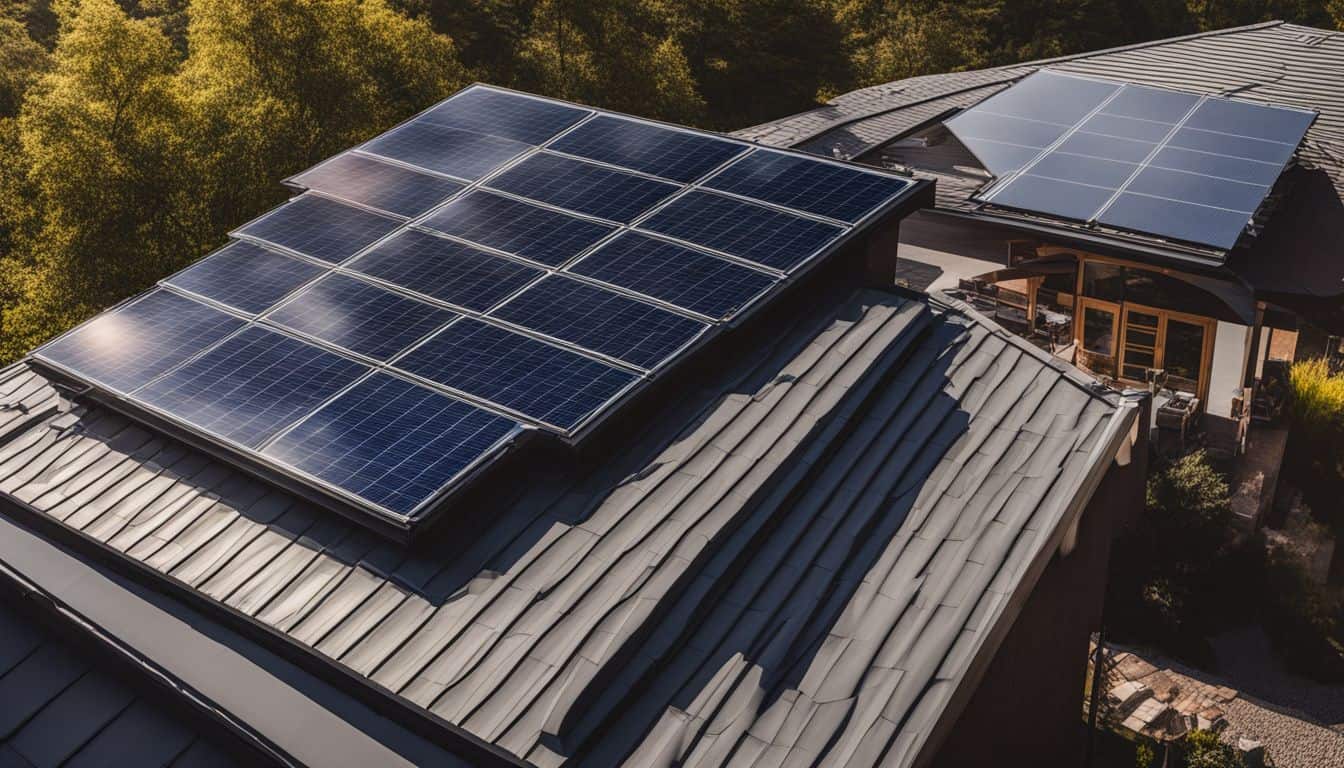As energy costs continue to rise and environmental concerns grow, more homeowners are turning to solar heating panels as an efficient and eco-friendly solution for their homes. This comprehensive guide will walk you through everything you need to know about mastering solar heating panels, from understanding the basics to optimizing your system’s performance.
Understanding Solar Heating Systems
Solar heating panels are devices that capture the sun’s energy and convert it into heat for various applications in your home, such as heating water or spaces. There are two main types of solar heating panels:
- Flat-plate collectors: These are the most common type, consisting of a dark flat-plate absorber covered with a transparent cover.
- Evacuated tube collectors: These use glass tubes containing absorber plates, offering higher efficiency but at a higher cost.
A typical solar heating system consists of several key components:
- Solar collectors (panels).
- Storage tanks.
- Heat exchangers.
- Circulation systems.
- Control units.
Understanding how these components work together is crucial for mastering solar heating panels for your home.
Planning Your Solar Heating Installation
Before diving into installation, it’s essential to assess your home’s solar potential. Consider factors such as:
- Roof orientation and angle.
- Shading analysis.
- Your heating needs.
- System size requirements.
Proper planning ensures that your solar heating system will meet your needs efficiently and effectively.
Choosing the Right Solar Heating Panels
When selecting solar heating panels, consider:
- Efficiency ratings.
- Durability and longevity.
- Cost-effectiveness.
- Aesthetics and integration with your home’s design.
Remember, the most expensive option isn’t always the best for your specific needs. Take time to research and compare different options.
Installation Best Practices
Proper installation is key to the performance and longevity of your solar heating system. Here are some best practices to keep in mind:
- Ensure proper panel placement and mounting
- Integrate seamlessly with existing heating systems
- Optimize tilt and orientation for maximum sun exposure
- Adhere to safety guidelines and local regulations
For a detailed guide on the installation process, check out this step-by-step solar heating panels installation guide.
Maximizing System Performance
To get the most out of your solar heating panels:
- Perform regular maintenance and cleaning.
- Monitor system output.
- Optimize usage patterns.
- Make seasonal adjustments.
Regular maintenance not only ensures optimal performance but also extends the life of your system.
Financial Considerations
While the initial cost of solar heating panels can be significant, they often provide substantial long-term savings. Consider:
- Initial installation costs.
- Available incentives and rebates.
- Potential energy savings.
- Return on investment analysis.
Many homeowners find that solar heating panels pay for themselves over time through reduced energy bills.

Navigating Installation Regulations
Before installing solar heating panels, it’s crucial to understand and comply with local regulations. These may include:
- Building permits.
- Zoning laws.
- Homeowners association rules.
- Safety codes.
For more information on navigating these regulations, refer to this guide on solar heating panel installation regulations.
Troubleshooting Common Issues
Even well-maintained systems can encounter issues. Common problems include:
- Reduced efficiency due to dirt or debris.
- Leaks or damage to panels.
- Circulation problems.
- Control system malfunctions.
Knowing how to identify and address these issues can save you time and money in the long run.
Integrating Solar Heating with Other Home Systems
Solar heating panels can be integrated with other home systems for increased efficiency. Consider:
- Combining solar heating with radiant floor heating.
- Integrating with your home’s smart energy management system.
- Using solar heating for pool or spa heating.
These integrations can maximize the benefits of your solar heating system and further reduce your energy costs.
Environmental Impact and Sustainability
By choosing solar heating panels, you’re making a significant contribution to environmental sustainability. Some benefits include:
- Reduced carbon footprint.
- Decreased reliance on fossil fuels.
- Potential for energy independence.
Understanding these benefits can help you appreciate the broader impact of your decision to invest in solar heating.
Future Trends in Solar Heating Technology
The solar heating industry is constantly evolving. Keep an eye on emerging trends such as:
- Advancements in panel efficiency.
- Smart home integration capabilities.
- Hybrid systems combining solar with other renewable energy sources.
- Improvements in energy storage technologies.
Staying informed about these developments can help you make future-proof decisions about your solar heating system.
Case Studies: Real-World Applications
Examining real-world examples can provide valuable insights into solar heating systems’ practical benefits and challenges. Consider researching case studies of homes similar to yours that have successfully implemented solar heating panels. Contact solar installers, utility companies, and local solar energy associations for information on nearby installations. Additionally, utilize online resources such as the Department of Energy’s Solar Energy Technologies Office website and industry platforms like the Solar Energy Industries Association (SEIA) for case studies and success stories.
When reviewing case studies, focus on homes that match yours in terms of size, climate, energy needs, and budget. Pay attention to the type and number of solar panels used, installation process, energy production, cost savings, and any challenges faced. If possible, try to connect with homeowners featured in these case studies through local solar energy events, online forums, or by asking installers to put you in touch with previous customers.
Conclusion
Mastering solar heating panels for your home involves understanding the technology, careful planning, proper installation, and ongoing maintenance. While it may seem daunting at first, the benefits of solar heating – from reduced energy costs to a smaller carbon footprint – make it a worthwhile investment for many homeowners.
By following the guidelines in this comprehensive guide, you’ll be well on your way to harnessing the power of the sun to heat your home efficiently and sustainably. Remember, every step towards renewable energy is a step towards a cleaner, more sustainable future.
As you embark on your solar heating journey, don’t hesitate to consult with professionals and continue educating yourself about advancements in the field. With the right approach and knowledge, you can maximize the benefits of your solar heating system and enjoy comfortable, eco-friendly heating for years to come.











Leave a Reply